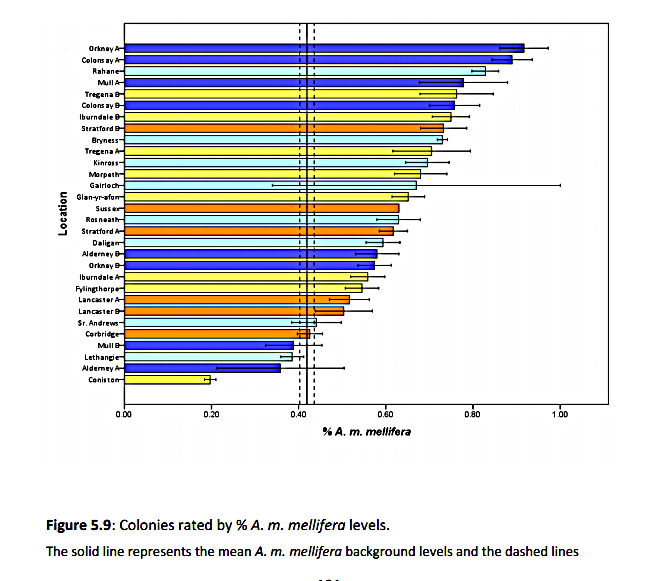- Joined
- Jan 13, 2015
- Messages
- 7,639
- Reaction score
- 669
- Location
- Bedfordshire, England
- Hive Type
- Langstroth
- Number of Hives
- Quite a few
So I import strains of bees that are obviously much better adapted to my local environment than the locals....given their prodigious honey yields. They are even gentle to work with and rarely swarm.
This is the odd thing about the native vs non-native argument. How can imports perform much better than home-grown colonies if the natives are so-well adapted to our climate?
I came to the conclusion that this was complete hogwash. There is really not that much difference (if any) between our climate and that of our European neighbours.




 How can anything become adapted to its environment when kept in artificial conditions, like a hive. Get treated for life threatening parasites and then get fed when they have eaten all their winter stores.
How can anything become adapted to its environment when kept in artificial conditions, like a hive. Get treated for life threatening parasites and then get fed when they have eaten all their winter stores.










































